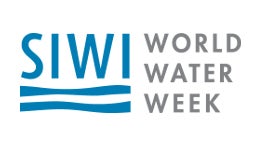The World Bank at World Water Week 2015 As population and economic growth bump up against finite—and increasingly degraded—water resources, competition between agricultural, industrial, and municipal water uses increases, putting stress on existing water sources. This stress is felt most acutely in urban areas, particularly among the urban poor.
As population and economic growth bump up against finite—and increasingly degraded—water resources, competition between agricultural, industrial, and municipal water uses increases, putting stress on existing water sources. This stress is felt most acutely in urban areas, particularly among the urban poor.
Moreover, urban water management systems are inefficient, leading to an uneven quantity and availability of water and related services. In addition, urban water management must consider the effects of climate change, including rising temperatures, changes in precipitation patterns, and climate variability, on water resource availability.
The Water Global Practice of the World Bank is contributing to the effort to build resilient cities through the following approaches:
- Promoting the integration of a wider resource perspective.
In Bogota, Colombia, Buenos Aires, Argentina, and Vítoria, Brazil, the Bank is supporting government efforts toward comprehensive upstream watershed management coupled with urban water management and flood control.
- Promoting the principles of integrated urban water management (IUWM).
In Teresina, Brazil, the World Bank is providing financing to integrate drainage infrastructure with water supply and sanitation, create green areas to mitigate the effects of urban flooding, and regenerate urban areas to promote economic development and leisure opportunities. In Uruguay, the Bank is supporting development of a roadmap for an IUWM national strategy for sustainable urban development and for the strengthening of local capacity.
- Promoting mainstream water in broader city resilience exercises.
- Promoting decentralized cities
Building resilient cities requires various sectors to work together to ensure integrated city-wide planning, including effective water resources management. It also requires a careful understanding of the governance system of cities and their place in the intergovernmental system. The World Bank will continue to work across sectors and with diverse institutions and stakeholders to help cities become resilient for the challenges ahead while ensuring decreased vulnerability of the poor and strengthened urban governance and accountability.
To learn more, read “ Water for Development: Responding to the Challenges.”
If you are interested in learning more about climate resilient cities, the following sessions at World Water Week might interest you:
Livable Cities for All: Integrated Sanitation and Water Services
Tuesday, August 25, 09:00-10:30 (FH Congress Hall A)
#SIWISofa: Raising the Profile of Water Towards COP21
Wednesday, August 26, 11:00 -11:30 (Exhibition Hall A)
High Level Panel: Raising the Profile of Water Towards COP21
August 26, 14:00-15:30 (NL Auditorium / Aulan)
Livestream available
Follow us online: www.worldbank.org/worldwaterweek
On twitter @worldbankwater and hashtag #wwweek



Join the Conversation